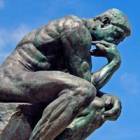The denial of the substantial unity of the person could claim from very different positions. It should be recalled, for example, the philosophies of Plato and Philo who admitted the existence of several souls, or psychological phenomenalism in which there is no substance that is identity support [
...]







